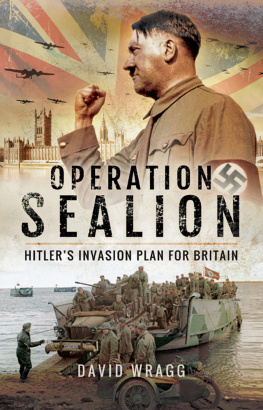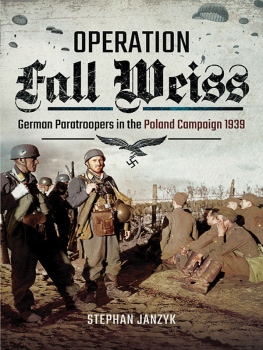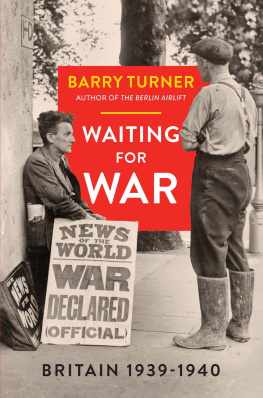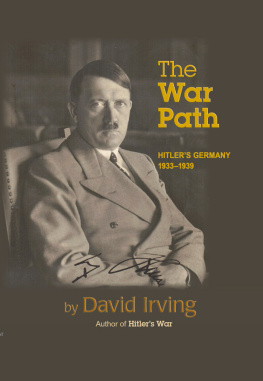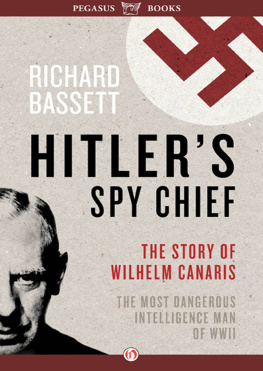Hitlers Munich Man
To-day, a Man of Munich is used by our gutter Press as a term of contumely. I wonder what our descendants a hundred years hence will have to say about it. Whatever their verdict, which largely depends on the nature of the historians, I only desire that my name be written humbly on the scroll of the Men of Munich
Sir Barry Edward Domvile 1943
Hitlers Munich Man
The Downfall of Admiral Sir Barry Domvile
Martin Connolly
First published in Great Britain in 2017 by
Pen & Sword Military
an imprint of
Pen & Sword Books Ltd
47 Church Street
Barnsley
South Yorkshire
S70 2AS
Copyright Martin Connolly 2017
ISBN 978 1 52670 707 9
eISBN 978 1 52670 709 3
Mobi ISBN 978 1 52670 708 6
The right of Martin Connolly to be identified as the Author of this Work has been asserted by him in accordance with the Copyright, Designs and Patents Act 1988.
A CIP catalogue record for this book is available from the British Library.
All rights reserved. No part of this book may be reproduced or transmitted in any form or by any means, electronic or mechanical including photocopying, recording or by any information storage and retrieval system, without permission from the Publisher in writing.
Pen & Sword Books Ltd incorporates the Imprints of Pen & Sword Books Archaeology, Atlas, Aviation, Battleground, Discovery, Family History, History, Maritime, Military, Naval, Politics, Railways, Select, Transport, True Crime, Fiction, Frontline Books, Leo Cooper, Praetorian Press, Seaforth Publishing, Wharncliffe and White Owl.
For a complete list of Pen & Sword titles please contact
PEN & SWORD BOOKS LIMITED
47 Church Street, Barnsley, South Yorkshire, S70 2AS, England
E-mail:
Website: www.pen-and-sword.co.uk
Dedicated to the memory of those who perished under Nazism and to the brave men who gave their lives to defeat them.
Monsters exist, but they are too few in number to be truly dangerous. More dangerous are the common men, the functionaries ready to believe and to act without asking questions.'
Primo Levi, Holocaust Survivor
Acknowledgements
N o one ever truly writes in isolation. Around every writer there are resources and people who help towards the finished work. I am therefore grateful firstly to my wife Kitty who tolerates my many hours researching and writing and to my children for their support and encouragement.
I am also highly appreciative of those at Pen & Sword who have always been courteous and helpful with me as an author moving my idea from its conception through to the published work, especially the ever present Heather and her patience with my many questions.
There are also those resources I mentioned and I hope I have forgotten no one in the list that follows and if I have failed to acknowledge anyone, I will correct that in future editions.
To all of them I am as ever thankful.
Introduction
W hilst researching in the National Archives in London, my attention was drawn to a small passage that was not particularly within my then current research. However, because of my background in researching the Holocaust and the relationship between Jews and Christians, I was drawn to the description of a prominent Knight of the Realm and his anti-Semitic activities. As I pulled on this thread I unravelled the fascinating story of events from the Second World War that I had not been fully aware of. This book is the result of the discovery of that small passage.
The world has seen many wars. In them, dictators and national leaders have risen to impose their authority on others or to right a seeming injustice. The bloody battles of men using primitive bows and arrows, axes and knives in hand to hand combat gave way to gunpowder and the terror of death from a distance. At the beginning of the twentieth century, the world entered a decade of great uncertainty and change. In Europe, vast industrialisation saw the manufacture of new forms of weaponry and in the second decade of the century, war became a mechanised horror that would see tens of thousands killed or horrifically wounded within hours.
It was so momentous and involved many of the major countries, that it would be given the name the Great War. That war would be followed within twenty-five years by another horrific slaughter and the Great War would become the First World War (28 July 191411 November 1918) followed by the Second World War (1 September 19392 September 1945). Both these conflicts had Germany at their centre. Between these wars, pro-Germans and Fascists became a growing concern in Britain. This book does not attempt to give a complete analysis of fascism or pro-German activity in Britain. However, in order to appreciate the central point of this book, it is important to paint the backdrop to the rise of fascism, German sympathy and anti-Semitism in Britain between the wars.
What is sometimes lost in looking at history is that the grand sweep can cause important details to be missed. The early 1900s in England were a time of concern about Germanys military intentions after their campaigns in the late 1880s. The country was awash with rumours about what Germany was up to and the belief that their spies were living secretly throughout Britain. Newspapers were warning the population to be alert for foreign strang-ers in their midst. The landed gentry were concerned about how imports were destroying the local economy, and their profits. Conservatism was feeling threatened by the issues being raised by Socialists and Communists. Protectionism was in the air and the conspiracy theory of international finance was at work. This in turn raised the supposed spectre of Jews being behind the scenes manipulating events.
Anti-Semitism had been a running thread through English history. It rose and fell with the tide of social upheaval when a scapegoat was needed to explain the problems behind the difficulties in the country. One man who typifies these attitudes was Houston Stewart Chamberlain who was a particular proponent of an idea that Hitler would later pick up. That was the belief that the Teutonic race was being polluted, especially by Jews. English-born, Chamberlain would move to Austria and marry Wagners daughter Eva. Then there was Anthony Ludovici, who advocated that the only way to eradicate the influences of feeble Liberalism and Judaic/Christian ideas was through violence and physical extinction. Ludovici was born in England and in many ways leaned to Conservatism, but he believed in eugenics and the right of the hereditary aristocracy to rule. He would later become a member of the extreme Right Club and become an admirer of Hitler and his ant-Semitic policies. He was prolific in writing books and pamphlets on the matter.
The Boer war had ended and the British population was suffering from poverty. Workers were discontented and the seeds of the Labour Party were sown. The Womens Social and Political Union (WSPU), the Suffragettes, were agitating for reform of the democratic system. Britain had aligned with France, which led to Germany attempting to break that alliance. Chancellor David Lloyd George introduced his Peoples Budget which was wrecked by the House of Lords. The Irish question and Home Rule was causing consternation. German gunboat activity in Moroccan waters, and the French/ German pact that resulted, raised worries in Whitehall. The Liberals and Conservatives vied for government with Labour and Irish Nationalists making their own demands. War with Germany eventually came and with it the severe draconian measures of the Defence of the Realm Act and concerned liberal reactions. All this was the backdrop to a view that a strong hand was needed to protect the country. The seeds of a revival of anti-Semitism, Nationalism, and Dictatorship united in Fascism were sown and these would find flowering in the inter-war years.


